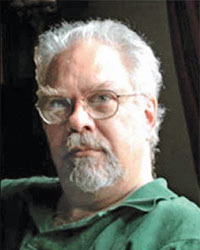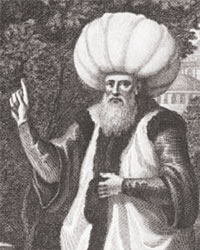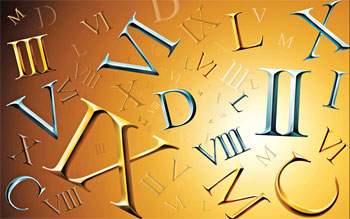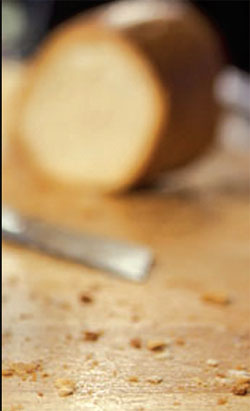|
The Islamic empires that gave Europe its Renaissance
Mesbah UDDIN
It is quite rare these days to hear anything good about Muslims from
the Anglo-American news media. There are, however, some exceptions in
the West and Dr. Richard Bulliet, Professor of History Columbia
University, New York is one of them. He narrated the scenarios that
elevated the Muslims as the Torch Bearers during those Dark Ages of
Europe and helped them achieve their Renaissance.
Roman civilization begins around 250 BC and ends around 500 AD. But
the Renaissance starts about 1,300 AD - a difference of 800 years. This
is referred to as the European Period of Darkness by the contemporary
historians. While no progress may have happened in the Western World
during those days because of religious dogmatism, but did the rest of
the world take a recess too for 800 years? The answer is ‘surely not'.

Dr. Richard Bulliet |

Caliph Harun-ar-Rashid |
During the Dark Ages of Europe, the Islamic civilization created a
superdome for innovative science and technology. Muslim countries of
that time helped wipe out the cavity of darkness in Europe. In
recognition of this Professor Bulliet commented “if it had not been for
the Muslims, we might have never had Renaissance at all.”
Newness and novelty
The inception of Islam took place in the 7th Century in a small city
known as Meccah. Islam was not a new faith but its message was filled
with newness and novelty. It had more congruity than conflict with other
monotheism. It didn't have any plan to change Christianity or Judaism;
rather it had its building block on the cognizance of the
Judeo-Christian Prophet hood. Islam had an unbending theme of abolishing
social injustice. Within a short while, the message of Islam traversed
throughout the whole Arab Peninsula, Palestine, Jordan, Syria, Iraq,
Persia and North Africa, Spain and all the way to Indian subcontinent.
Even the far-reaching China felt the inviting rhythm of Islam.
At the beginning, Islamic people were simple-minded desert dwellers.
They however, had indomitable desire to adopt other's virtue and enrich
their own knowledge, technology and means of life. That's why the
footsteps of Islamic people could be traced to Greece, Italy, Persia,
India, and all the way to the doors of China. During those days of
Islam, Islamic civilization was free from religious constrictions. The
people of Islamic domain represented a conglomerate that possessed
honorable positions in all aspects of civilized societies even though
they differed in race, religion and country of origin.
One of the greatest times of Islamic achievements can be traced to
the time of Caliph Harun-ar-Rashid. His empire had the imprint of Hebrew
physician, Greek philosopher, Turkish soldier and many more. The stories
about Aladdin and his magic-lamp, Sinbad the Sailor, Alibaba and Forty
Thieves and many other folk-tales were not based on the Arabs alone. But
all of them had the flavours of the Arabs. People during the prevalence
of Islamic civilization, spoke in Turkish, Hebrew, Persian and Greek but
even then their official language was Arabic.
|

Decimal fields |
An exclusive artistic design that is known to us as Arabesque is
pivoted on skilful presentation of Arabic letters. Thousands of
scientific names in English today have Arabic roots. In general if we
notice ‘al’ at the beginning of a word, chances are that it originates
from Arabic.
For instance alcove is derived from al-qubbah, almanac is from al-manaakh,
algebra from al-Jabr, alcohol from al-kuhul and alkali from al-qili. The
counting process of algorithm is named after al-Khwerazmi. He was a
renounced mathematician and a notable advisor to Harun-ar-Rashid. Al-kimia
was a chemist and his name could be traced to alchemy. The Muslim
chemists tried hard to enhance the longevity of the livings. Their
efforts eventually paved the way to modern chemistry.
Medical treatment
Even in the field of surgery, the Muslims of the medieval times
contributed a lot. Here Professor Bullet had wholehearted praise for
them. He wrote “they also made great strides in saving life and healing
the sick. They invented many new medical instruments and made important
breakthroughs in optics and surgery. Islamic medicines were much more
advanced than anything going on in Europe.”
There was, in the 9th Century, a famous Muslim physician named
Ar-Razi (to the West he is known as Razi). His research, in the field of
medical treatment, still occupies an influential place. Ibn Sina of
Bukhara is known as Avicenna in Europe. During the 10th Century he wrote
a medical encyclopedia and named it as the Canon of Medicine. It was
then unrivalled in the medical history. The prevalence of the Canon of
medicine was indispensable in Europe throughout the 17th Century. It was
the Muslim physicians that introduced the concept of pharmacy and
hospital for the first time in medical history.
From the 7th to the 12th Century, the people of the Islamic countries
showed enormous excellence in literature, science, trade and commerce.
But right at the door of science there was mathematics and mathematics
needs digits and numbers. In this context Professor Bulliet, with a
heartfelt thank recognized and said “this is where the medieval Muslims
made a contribution that benefits each of us every day”. The counting
method that existed prior to Muslim's decimal system was known as Roman
method. Its application was a nightmare even to the experts - let alone
ordinary people.
To eliminate this counting hardship, the mathematicians of the Muslim
empire imported a new system from India and improvised it with the
introduction of zero. The system contains nine numerals and one zero and
the value of each numeral is dependent on its place value. Thus if we
write 1, its value is one, but when we write 11, then from the left the
value of the first 1 is ten and the second 1 is one, and the combined
value is eleven. Thus when we place a “0” after 1 the value is ten. In
modern science, this is known as the decimal system. Here too, Professor
Bulliet gave enormous credits to the Muslim. He picked up a year and
made a remark “thanks to the Muslims we no longer have to write
MCMLXXXIV and instead we write 1984”. The credit for the decimal system
of numbers is, in general, given to the Arabs. Here Professor Bulliet
was cautious and explained “although strictly speaking, they are Indian
numerals, but hadn't it been the mathematicians of the Islamic Empire,
they might never have reached the Western World”.
Paper, though indispensable as a carrier of knowledge to the
civilized world, was not invented in Europe - rather in China. But
throughout the world the making of paper bears the hallmark of the
Muslims. Right from the 8th to the 11th Century, the paper making
technology reached all the way from Samarqand to Spain. Besides new
invention, the Muslims reinvented others’ invention and made them
accessible over time to sustain continuity.
European Renaissance
Let us now come to the eras of European Renaissance. All that we know
about Greek philosophy, literature and science are intricately tied to
European Renaissance. The Europeans, after 800 years of intellectual
darkness didn't have a chance to read about Socrates, Plato, Aristotle,
Euclid, Hypocrites and other Greek notables in their original
composition in Greek. Rather they read them in Arabic. The Catholic
Christianity believed these Greeks literary treasures as the works of
the pagans and consequently had them destroyed.
There was a time when the Muslim Caliphs patronized the translation
of all the famous Greek literature in Arabic, especially by Caliph
Abdullah-al-Mamun (son of Harun ar-Rashid). In 830, he established the
House of Wisdom, a centre for Greek translation work. This effort saved
the Greek literary antiquities from vanishing away from the surface of
the earth. In the 10th and 11th Century, the knowledge-thirsty Europeans
flocked into Islamic cities.
Their learning centers were Cordoba, Baghdad, Damascus, and Cairo
which were the places that were the centers of higher learning.
There were also the cities where the Greek classics got translated
from Arabic to Latin. These cities were not just for the Europeans to
study Greek literature alone, rather they housed Chinese, Indian,
Persian, Hebrew and other scholars. The collective efforts of these
scholars helped restore most of the Greek classics that exist today.
In those early days of higher learning, the students used to sit
around the chairs of the teacher. Some scholars are of the opinion that
this position of the chair and students, eventually turned into
departmental identification of the faculties such as ‘Chair of
Philosophy, Chair of History’ and so on.
Some scholars are also of the opinion that the academic gown worn
during convocation has impeccable Islamic imprint. Thinking rationally,
it would be obvious that other than established traditions, acquired
from the oldest university of the world, there could be no reason to
wear a costume on the convocation day, which should look like an Arab
Sheikh. History tells us that Al-Azhar in Cairo is the first and the
oldest university of the world. It was built as a formal university in
970 AD.
While the West takes pride for their nuclear and mechanical
advancement today, but do they realize who gave them the initial
stepping stone to stand on? Who gave them the torch to search through
the caves of the Dark Ages? Weren't they the Muslims of middle ages
across the Mediterranean Sea? Didn't they keep the torch of civilization
kindled up for eight hundred years before the West got rejuvenated?
Sayings of Abd al-Qadir al-Jilani
1. Consider the feeling that rules your heart, for then you will
understand what you are worth. 2. The greatest happiness is not being
dominated by happiness. 3. Our enemies are our greatest moral teachers,
because they thrust our faults in our faces. 4. It is dangerous for a
human being to be too self-confident. 5. The purpose of education is not
to make a machine, but to make the human being.
6. Do you wish to be the master of a good servant, with whom you will
be satisfied? If so, you must perform service for yourself. 7. You must
keep your judgment clear of the mists of vain conceit. 8. Compared to
the pleasure given by granting pardon, the pleasure given by exacting
revenge is very faint indeed. 9. You must be such an ardent lover of
truthfulness that every statement you make assumes the quality of a
solemn oath. 10. When your soul is bored you must work.
11. Our strength is much greater than our will. In order to conceal
this shortcoming, whenever we cannot perform a task, we say, “It is not
possible...”. 12. The human being is not in control of his feelings, but
he is in control of his movements.13. We have been created to rely on
one another. If a stone is removed from a wall, as if to demonstrate the
risk of that wall's collapsing, and if one of us withdraws, we are left
face to face with the danger if its collapse.14. The remedy from poverty
is not to bear grudges against the rich. 15. Do not trust a person who
does not trust himself.
16. The human being obtains some of his misfortunes by failing to
attend to his own comfort.17. You must not do anything while you are
angry. Would the sail be hoisted in the storm? 18. When a person’s
authority is great, his effort and his caution must also be great.19. To
be a great man is easier than being a good man. 20. Are you not fond of
life? If not, you must not waste your time, because life is a garment
made from the cloth of time.
21. The display of fame most often suppresses the voice of
conscience. 22. Blood is washed with water, not blood. 23. Happiness
does not exist in a place where justice does not exist.24. Your most
real enemies are the greed, the envy and the jealousy that live in your
heart. These are the soldiers of the instigating self (an-nafs al-ammara).
25. For others it is justice, while for us it is compassion.
26. The fly does not enter the mouth that is shut. 27. We have not
invented courtesy in order to show off the goodness that does not exist
in ourselves. 28. Success is a letter delivered by three mailmen. These
mailmen are competence, endeavor and good fortune. 29. To reach and pass
by the goal is the same as not reaching it. 30. Nothing can kill the
power of the lower self, but everything serves to enhance it.
31. Those who make fun of you, those who try to get rid of you, they
are the people whose applause you most often seek to obtain. 32. The
thoughts of women are constant. From this point of view, the clever
person does not shun the company of women. 33. Cowardice is the one
thing that cannot be repaired by any means. 34. To live without
commotion provides consolation for an unsuccessful life. 35. Hope is the
money given on loan by happiness. 36. A man who has no confidence in
himself can accomplish nothing. 37. Smiling is the shield of the
bashful. 38. The best of men is the person who is most beneficial to
others. 39. That which joins minds together is telling the truth. Lying
serves no purpose other than seperation. 40. Conscience is the best of
the books of morality, so we must always make reference to it. 41. If we
do not stick to the path that He has shown, the worship of Allah is no
more than an empty word. 42. The success of a human being is measured by
the effort he has exerted in order to achieve that success. 43. Only
great spirits experience the triumph of success. 44. Trying to discover
the faults of other people amounts to making no effort to deal with
those in one. 45. People who miss the opportunity are many, but there is
no one whom opportunity misses.
46. When someone rises high, he raises all spirits and this world
too. 47. Good fortune is dependent on doing good work. 48. If you claim
to have understood a reality, you must only do so after putting that
reality into practice in your own life. 49. The best means of taking
revenge on a man is not to resemble that man. 50. A heart that does not
believe is like a cage that has no bird inside it.
51. So long as your heart does not support what is on your tongue,
you cannot take a step toward the Lord of Truth. 52. Oh my Lord! Enter
the house of our heart without the slightest hesitation, because there
is nothing in it whatsoever apart from the pain of separation from You.
53. When you have committed a sin, you must not lose hope of Allah's
mercy. You must use the water of repentance to wash away the dirt of sin
that has been smeared upon you. 54. The sun of those who were before us
(before Islam) has set. Our sun will remain forever in the highest
places of the sky, and it will never set. 55. The whole of your
aspiration and Endeavour must not be for simple things like eating,
drinking, clothing and marriage. That is because these are not the goal,
but only the means by which to arrive at the goal.
56. Four things are the basic means by which the heart is improved
and set in proper order: a) paying very careful attention to every
morsel that is eaten, b) setting time aside for worship, c) protecting
the charismatic marvel (by keeping it hidden and trying not to broadcast
it around), d) refraining from things that keep the human being at a
distance from Allah.
57. While eating lawful food is a radiant light, eating unlawful food
is a suffocating darkness. It kills the heart, whereas the lawful morsel
brings the heart to life. 58. You must not take conceited pride in any
deed, because deeds are measured on the basis of their final seal (their
ultimate condition). 59. While on the ocean of this world you must be
vigilant. You must be extremely sensitive, because many people are
drowned and lost in that ocean.
(Extracted from The Summary of
Religious Knowledge and Pearls of the Heart by Sheikh ‘Abd- Al-Qadir al-Jilani)
Blessings may never come back
Aisha (radi Allahu anha) narrated that the Prophet (sal Allahu alaihi
wa sallam) entered upon her one day and saw a small piece of bread on
the floor, so he picked it up and wiped it, then told her: “O Aishah,
treat the blessings of Allah with respect, for when it departs from a
household it may never come back to them.” (Ibn Abi-Dunya)
|

Bread |
Seeing a small piece of bread on the floor made the Prophet (sal
Allahu alaihi wa sallam) warn Aishah regarding being ungrateful to Allah
(subhana wa ta’ala). What would he have said were he to see how plates
full of food are thrown away in dustbins?
Parents take their children to others’ houses, put food on their
plates and say nothing to them when they remorselessly leave it to be
thrown away. These are the very same people who you will undoubtedly see
complain about not having enough.
Vengeance of Allah
Prophet Muhammad (PBUH) said: “Drink no intoxicant, for truly, it is
at the head of all filthy actions; and beware of sinning; for truly,
with sin alights the vengeance of Allah.” (Ahmed)
“Many social evils start with the use of liquor. Never serve, nor let
anyone bring alcohol to your house. One family recently became a victim
of this evil. The woman told me that her husband never used to drink
although many of his friends did. One night at a party at their house,
his friends got him to drink as well and after consuming a large
quantity, her husband and two of his friends dozed off in the drawing
room.
At about three in the morning she woke up to prepare milk for her
three year old son, when one of her husband’s friends (who was drunk)
made an attempt to attack her – but she got away. When her husband woke
up, the friend narrated a completely different story to him and from
that day on the trust and hence peace between husband and wife began to
diminish.
He also began to regularly indulge in alcohol.” (Together Forever by
Faiez H. Seyal)
When everything in our life seems to be going wrong, we wonder why
Allah (subhana wa ta’ala) doesn’t listen to our duas any more. Did you
stop to think about what sins you are committing that have brought
Allah’s wrath upon you and made your prayers ineffective?
Sarandib - an ethnological study of the Muslims of Sri Lanka
Sarandib, an Ethnological Study of the Muslims of Sri Lanka by Asiff
Hussein, now in its third expanded edition, is by far the most
comprehensive work on Sri Lankan Muslim society.
Written in a lucid style, Sarandib is the culmination of much
research, inquiry and field studies on the society and culture of the
country’s major Muslim groups, the Moors, Malays, Memons and Muslims of
Indian origin who though of different ethnic origins, share the common
faith of Islam. The work is multi-disciplinary in scope and contains
detailed information on aspects like ethnic origins, language,
settlements, customs and traditions, dress and ornamentation, culinary
fare, medical remedies, names and titles, occupations, social
organization, ceremonial observances and religious and folk beliefs.
Hussein has painstakingly gathered information from diverse sources
which involved a number of field visits and interviews, particularly
with elderly folk who still preserve memories of their former lifestyle
and traditions, some of which no longer exist. He has also undertaken an
extensive survey of old records such as the Dutch tombos preserved at
the National Archives and other institutions which relate to the social
and economic life of local Muslims centuries ago.
Thanks to his efforts, much valuable information about the past
social, cultural and economic life of the country's Muslims which would
have otherwise been lost, have been preserved for posterity. His study
should go a long way in helping to preserve the colourful cultural life
and rich heritage of Sri Lanka’s Muslims. Indeed, this is a book every
Sri Lankan Muslim home should have. The work is illustrated with over
100 photographs including some very rare photographs. The book is
available at Vijitha Yapa, Barefoot, Odel, Makeens, Islamic Book House
and the Center for Islamic Studies.
The author Asiff Hussein is a freelance writer and author of a number
of publications. He is also the Founding Editor of Islamic Finance
Today, a magazine exclusively dedicated to the promotion of ethical
interest-free banking and finance. |



